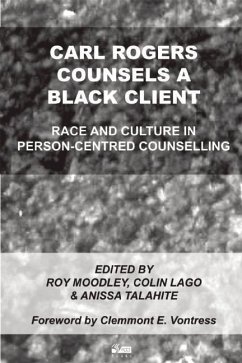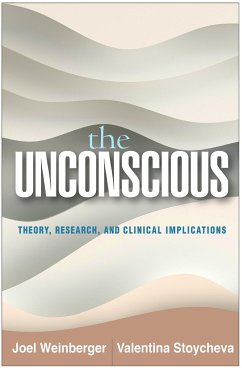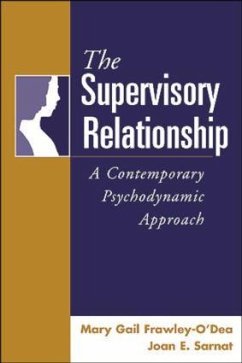
The Psychotherapy of Carl Rogers
Cases and Commentary
Herausgeber: Farber, Barry A; Raskin, Patricia M; Brink, Debora C
Versandkostenfrei!
Versandfertig in 2-4 Wochen
70,99 €
inkl. MwSt.

PAYBACK Punkte
35 °P sammeln!
The Psychotherapy of Carl Rogers gives readers a unique inside view of Rogers' therapy sessions. Presenting actual cases without edits or revision, this book follows sessions from start to finish with Rogers' exact words, illuminating his reflections, interpretations, self-disclosures, and errors. The selected cases span the period from 1946 to 1986 and represent a range of clients - from those suffering from depression, to those dealing with issues of racism, to an individual who was diagnosed as psychotic. The cases illustrate both the consistency with which Rogers attempted to be a keen and...
The Psychotherapy of Carl Rogers gives readers a unique inside view of Rogers' therapy sessions. Presenting actual cases without edits or revision, this book follows sessions from start to finish with Rogers' exact words, illuminating his reflections, interpretations, self-disclosures, and errors. The selected cases span the period from 1946 to 1986 and represent a range of clients - from those suffering from depression, to those dealing with issues of racism, to an individual who was diagnosed as psychotic. The cases illustrate both the consistency with which Rogers attempted to be a keen and respectful listener and the increasing diversity in his response repertoire over the years. After each case is presented, a client-centered therapist elaborates on the session's strengths, weaknesses, theoretical assumptions, inconsistencies, and notable features. In addition, for the experiential cases in the second section, a practitioner from another orientation - psycho analytic, cognitive-behavioral, spiritual - provides critical commentary. By discussing the similarities and differences between their approaches and the client-centered approach, they offer insight into the advantages and shortcomings of Rogers' model. Furthermore, the contributors represent a diversity of tone and content that reflect the wide-ranging influence of Rogers' model and the many creative ways it can be understood and applied. An important volume for psychotherapists, including psychiatrists, psychologists, social workers, counselors, and psychiatric nurses, this book also serves as a text for courses in counseling, psychotherapy, psychology, and client-centered therapy.












